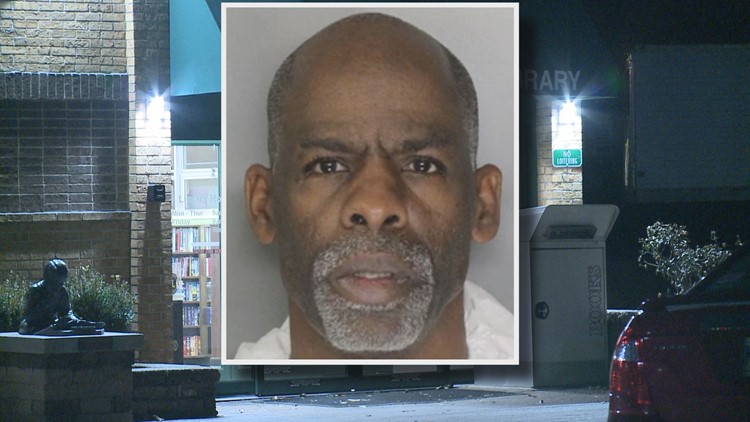ST. LOUIS — The man charged with murdering a Sacramento, California librarian previously worked with the St. Louis Fire Department.
Ronald Seay was a firefighter from October 1988 through June 1992. He rejoined the St. Louis Fire Department the following February and left again in November 1998. He spent a total of nine years with the department. He voluntarily left his positions both times.
The 56-year-old is suspected of fatally shooting librarian Amber Clark, 41, in the parking lot of the library where she worked in Sacramento.
Seay also is suspected of threatening librarians in St. Louis County.
According to Scott Bonner, a librarian at the Ferguson Public Library, Ronald Seay threatened himself and other librarians over an incident involving his wallet back in August.
He described the encounter in a tweet.
Bonner claims he was able to coax Seay out of the library and notified police, but even after that, Seay reportedly called the library to make direct threats against Bonner and other librarians.
There was also an incident at the Brentwood Public Library back in September.
Brentwood's police chief told 5 On Your Side, Seay became belligerent and refused to leave. Officers arrested him, and tried to get him psychologically committed for 96 hours, but a judge denied that request.
"Within 24 hours, a judge has to review the case and sign off to allow it to stay or they can say there’s not sufficient enough evidence and decline it," said Dr. Marva Robinson, a clinical psychologist.
That's what happened with Seay's case.
Dr. Robinson said situations like these can be common because it's up to the person filing the affidavit to prove someone like Seay is a danger to himself or others.
"If you’re the one filling it out, the more information you can give the better because for a clinician having to make that decision, weighing taking someone’s freedom while also protecting the public is a pretty huge burden that they’re under," she said.
Robinson also suggests, there was more the Brentwood library could have done in this situation, they could have filed a restraining order against Seay.
"That does two fold, in case the judge doesn’t grant the 96 hour committal, at least there’s a legal side of things that allow for some protections for that librarian and it starts to establish a paper trail," said Dr. Robinson.
Dr. Robinson said interstate communication on mental health issues is almost non-existent, so it's highly probable that California law enforcement had no idea Ronald Seay had a history of this type of behavior until it was too late.



